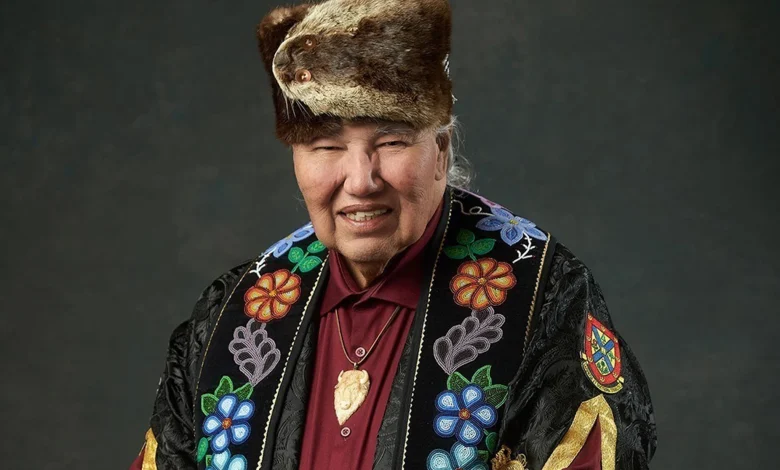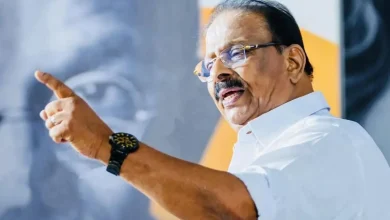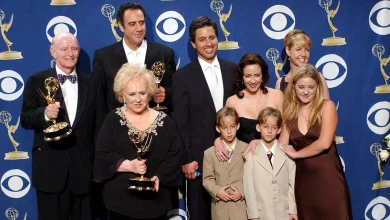Queen’s honours the one-year passing of Chancellor Emeritus Murray Sinclair

Chancellor Emeritus Murray Sinclair, Queen’s first Indigenous Chancellor and former Special Advisor on Reconciliation, is set to be publicly honoured one year after his death.
Sinclair served as the 15th Chancellor Emeritus and Special Advisor to the Principal on Reconciliation at Queen’s University between 2021-24. Sinclair was an Anishinaabe leader, a former Canadian Senator, a lawyer, and served as Manitoba’s first Indigenous judge between 1988 and 2009. A year after his passing at age 73 on Nov. 4, 2024, Queen’s is honouring and remembering his legacy.
In a statement to The Journal, Principal and Vice-Chancellor Patrick Deane reflected on the influence Sinclair had, sharing that Sinclair understood his deep responsibilities to Queen’s as chancellor, and despite health issues, was rigorously committed to the role.
“Chancellor Sinclair had an enormous impact on the University,” Deane said. “[He went] to considerable trouble to make videos for convocation in order to share his wisdom with graduands, and he was generally extremely generous with his time with faculty and students.”
“He understood profoundly what influence his position as Chancellor of Queen’s could have on the education landscape in Canada, and he was active with fellow chancellors.”
Principal Patrick Deane reflected on Sinclair’s belief that education must play a central role in reconciliation, given its place in Canada’s residential school history.
“He’s famous for his observation to the effect that education (the residential schools) plunged the country into a human and moral crisis, so education will have a key role to play in reconciliation, or the remediation of that crisis over time.”
Sinclair, who chaired the Truth and Reconciliation Commission of Canada was Queen’s first Indigenous Chancellor. Principal Deane described his appointment as a sign of Sinclair’s faith in Queen’s and confidence in its commitment to reckoning with its colonial history and making efforts for reconciliation.
The University’s current Chancellor, and citizen of the Manitoba Metis Federation, Shelagh Rogers, also shared in a statement to The Journal a story about Sinclair when he was in the hospital that reflected Sinclair’s commitment to dialogue at Queen’s.
“Last October, when he was in the hospital, his bed was facing a crucifix on the opposite wall. I asked him if he wanted me to take it down. He said no. He wanted it to have a dialogue with the sweetgrass in the room,” Rogers wrote.
It’s Rogers’ goal to continue this commitment to dialogue and grow upon it.
“I would love to see things that are identified as “being Queen’s” in dialogue with Indigenous elements. For instance, at Convocation, the ceremony could feature both the fabulous pipers, but also Indigenous drummers. That dialogue would be amazing,” she said.
“I also want to know that promises made to the Indigenous community at Queen’s are honoured. That could be something as simple as a commitment to providing weather protection for the Indigenous Outdoor Gathering Space, or as profound as acknowledging past harms.”
Both Deane and Rogers reflected not only on Sinclair’s national impact, but also on the personal warmth and intellect he brought to every conversation. They described him as kind, brilliant,
and humorous.
“He was an absolutely extraordinary human being whose humour, kindness and great intelligence had an indelible effect on every person he met and every institution he served,” Deane wrote.
The Queen’s community will honour Sinclair’s legacy through the newly established Chancellor Emeritus Murray Sinclair Commemorative Lecture Series, launching in January 2026, alongside his official University portrait, which will be unveiled at the inaugural lecture.
“I see this as a series where his legacy is both explored and upheld, where truth is paramount. I hope it will lead to honest and open conversations about where we are at as a country, as a community and as a University,” Rogers wrote.
Tags
Commemoration, Indigenous, Murray Sinclair
All final editorial decisions are made by the Editor(s) in Chief and/or the Managing Editor. Authors should not be contacted, targeted, or harassed under any circumstances. If you have any grievances with this article, please direct your comments to journal_editors@ams.queensu.ca.





